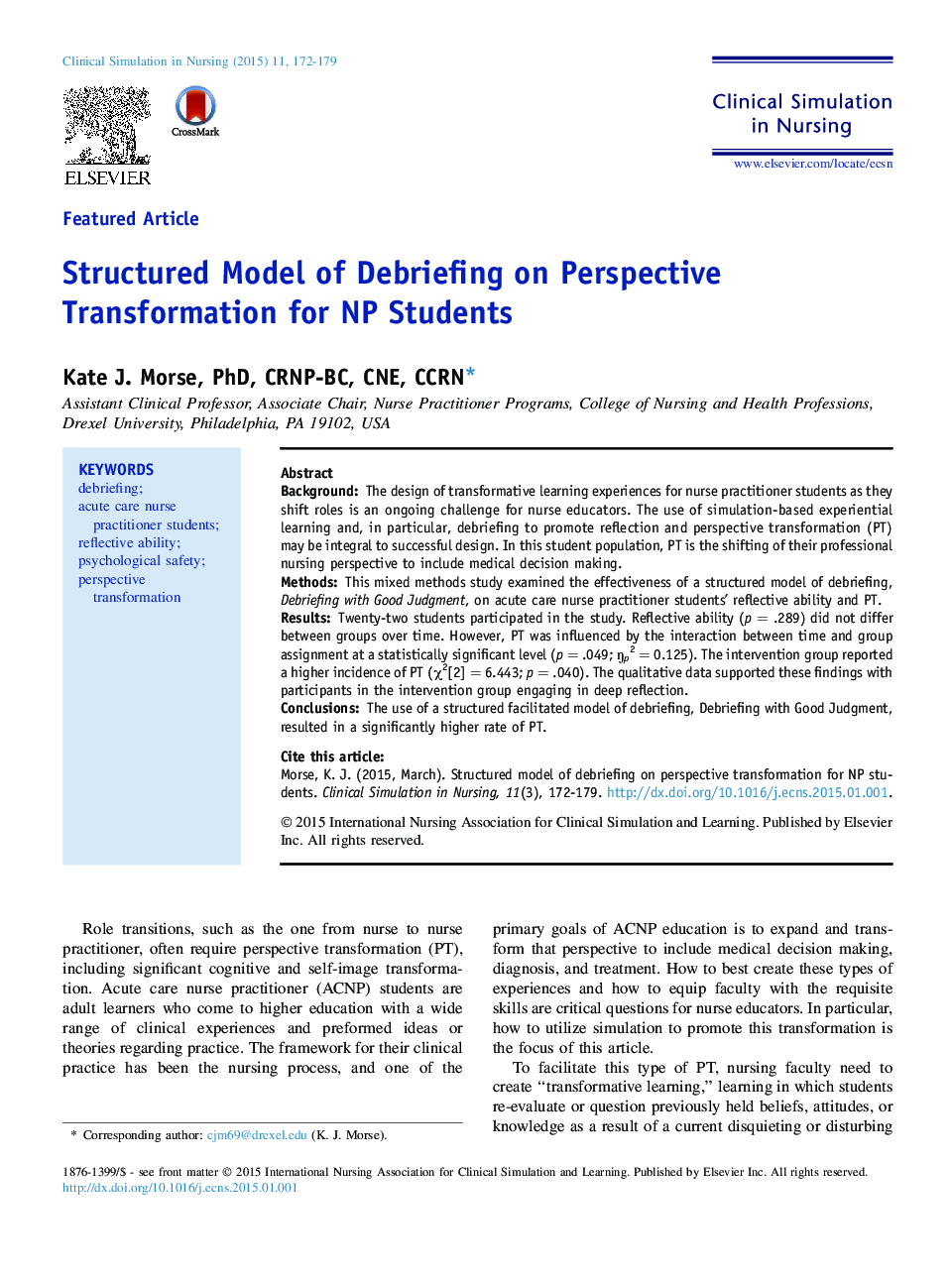| Article ID | Journal | Published Year | Pages | File Type |
|---|---|---|---|---|
| 2646085 | Clinical Simulation in Nursing | 2015 | 8 Pages |
•Psychological safety impacts the learners' ability to engage in critical reflection.•Without faculty training, engagement in critical reflection may not occur.•Engagement of the learners in critical reflection is essential to fostering a change in perspective.
BackgroundThe design of transformative learning experiences for nurse practitioner students as they shift roles is an ongoing challenge for nurse educators. The use of simulation-based experiential learning and, in particular, debriefing to promote reflection and perspective transformation (PT) may be integral to successful design. In this student population, PT is the shifting of their professional nursing perspective to include medical decision making.MethodsThis mixed methods study examined the effectiveness of a structured model of debriefing, Debriefing with Good Judgment, on acute care nurse practitioner students' reflective ability and PT.ResultsTwenty-two students participated in the study. Reflective ability (p = .289) did not differ between groups over time. However, PT was influenced by the interaction between time and group assignment at a statistically significant level (p = .049; ŋp2 = 0.125). The intervention group reported a higher incidence of PT (χ2[2] = 6.443; p = .040). The qualitative data supported these findings with participants in the intervention group engaging in deep reflection.ConclusionsThe use of a structured facilitated model of debriefing, Debriefing with Good Judgment, resulted in a significantly higher rate of PT.
